$in mongodb
Overview
One of the most commonly used features of MongoDB is the $in operator. The $in MongoDB operator allows you to match documents based on a list of values. In this article, we will explore the Mongodb $in operator in depth. We will cover how to use it when to use it, and the benefits it provides.
$in In MongoDB
The MongoDB in the operator is used to match documents based on a list of values. The syntax for using the mongodb in operator is as follows:
The field represents the field in the document that you want to match against the list of values. The $in is the operator that performs the matching. The values are the list of values that you want to match against the field. The mongodb in the operator is useful when you want to match documents` based on a list of values.
Examples
To understand, how to use the $in the MongoDB operator, let's connect to our database using Mongo shell. To connect to the Mongo shell, open your command prompt and type mongoose, and then select the database you want to use. To select a database user use keyword followed by the db name.
We have a database named company with a collection named employees that stores various data of the employees of the company. Please run this command to populate the db. This will help you to keep up with the tutorial on $in MongoDB.
Here are some examples using the mongodb $in operator
Using $in to Match Values:
Suppose we want to find all the employees whose performance rating is either 4.2 or 3.8. We can use the $in MongoDB operator to match the values of the "performance_rating" field against an array of values that we're interested in: Our query will be:
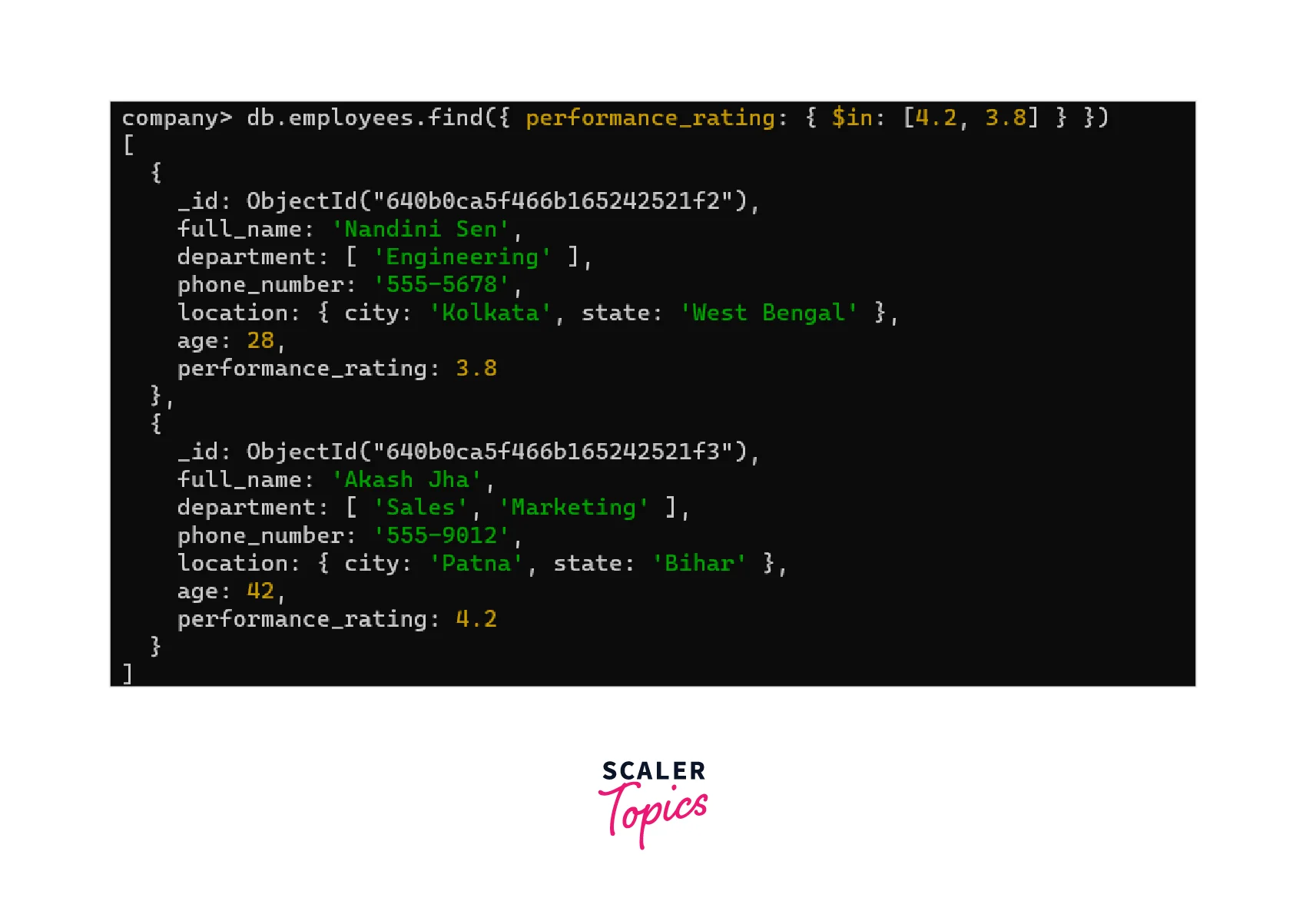
Using $in to Match Values in an Array:
For example, we want to find all employees who work in either the "Marketing" or "Engineering" departments. We can do this by using the $in operator to match the department field against an array of possible values:
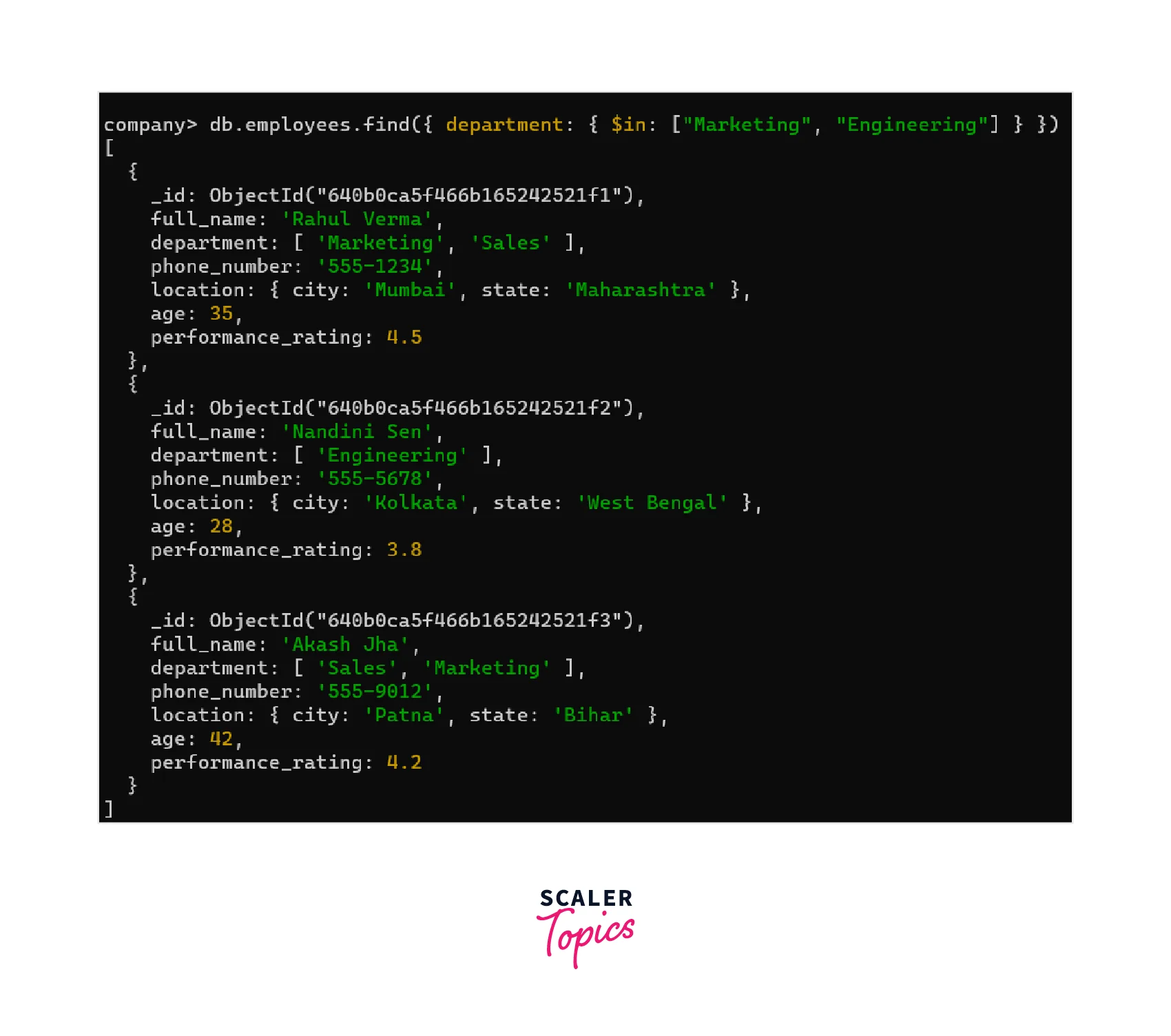
Using $in Operator to Match Values in Embedded/Nested Document:
Suppose we want to find all employees who are located in either "Mumbai" or "Kolkata". We can do this by using the $in operator to match the location. city field against an array of possible values:
This query will return two documents from the collection because Rahul Verma is located in "Mumbai" and Nandini Sen is located in "Kolkata":
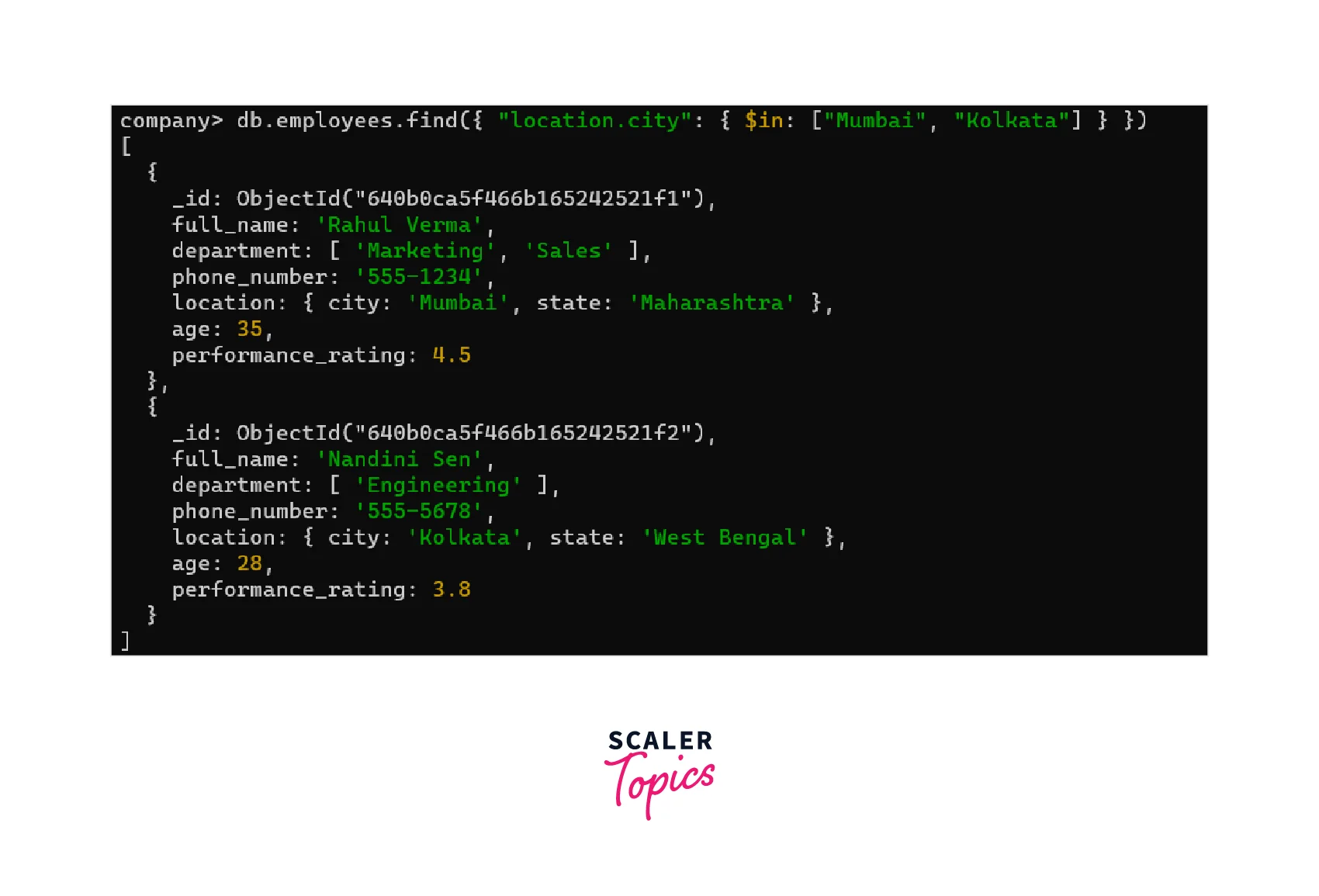
Updating data using $in operator
The $in operator can also be used to update data in MongoDB. For example, suppose we want to give a bonus to all employees who work in either the "Marketing" or "Sales" departments. We can do this by using the inc operator to increment the performance_rating field by 0.5:
This query will update the performance_rating field for both Rahul Verma and Akash Jha because they both work in either the "Marketing" or "Sales" departments. Nandini Sen will not be updated because she works in the "Engineering" department.
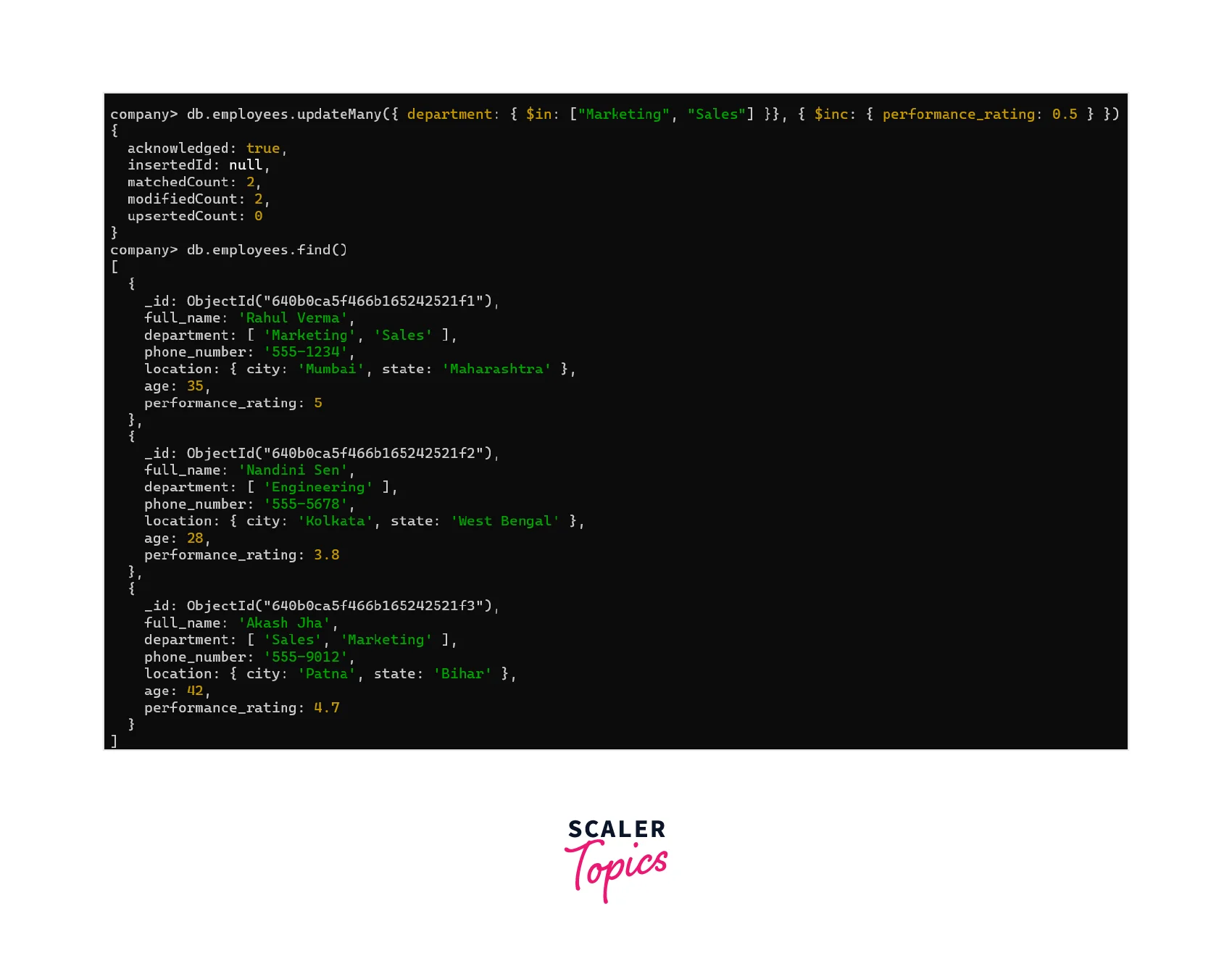
Using the $in Operator with a Regular Expression
The MongoDB in the MongoDB operator with a regular expression to accomplish this:
This query will return one document from the collection because Rahul Verma's full name contains the string "Ver":
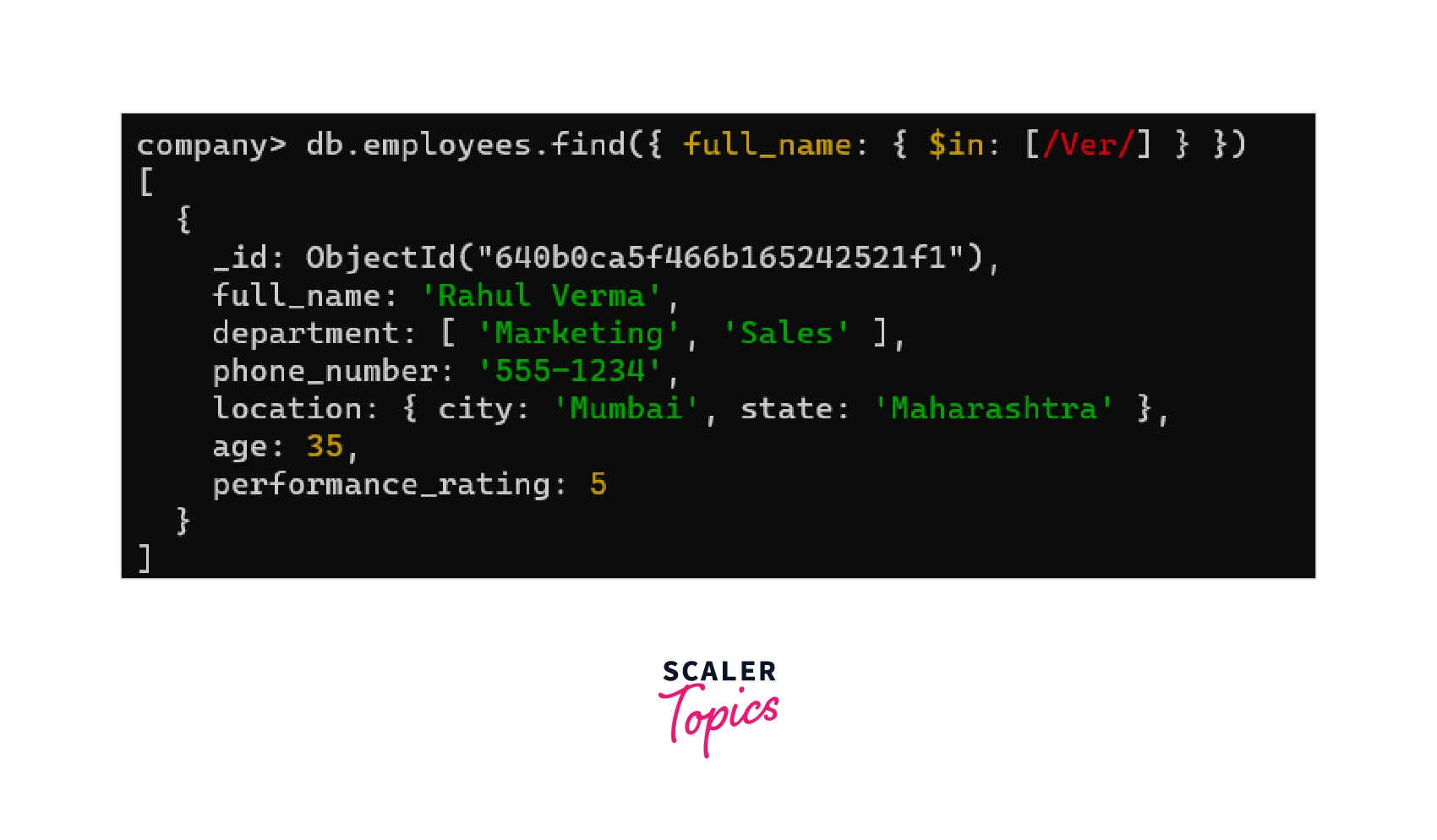
FAQs
Q. What Are Some Use Cases For the $in MongoDB Operator?
A. The $in operator is useful when you want to match documents based on a list of values, particularly when you have a field in your documents that contains a finite set of values. For example, it can be used to find all documents where a field matches one of several possible values.
Q. Can you Use the $in Operator With an Empty Array in MongoDB?
A. Yes, you can use the $in operator with an empty array, but it will not match any documents in the collection.
Q. What is the Difference Between Using the or Operator in MongoDB?
A. The $in operator allows you to match documents based on a list of values, while the $or operator allows you to match documents based on multiple conditions. The $in operator is useful when you want to match documents against a finite set of values, while the $or operator is useful when you want to match documents based on more complex conditions.
Conclusion
- The $in MongoDB operator is a powerful tool that allows you to match documents based on a list of values.
- It simplifies queries that would otherwise require multiple conditions to be met, and it allows you to easily search for documents that match any value in a list.
- The mongodb is particularly useful when you have a field in your documents that contains a finite set of values.
:
